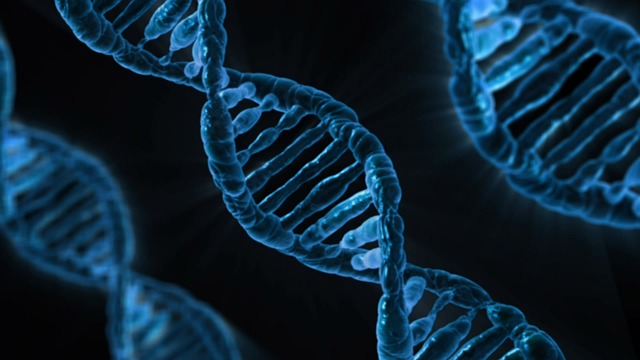
The researchers estimate that 66% of cancer mutations result from copying errors, 29% can be attributed to lifestyle or environment, and the remaining 5% are inherited.
Random, unpredictable DNA copying mistakes account for nearly two-thirds of the genetic changes that cause cancer—far more mutations than those triggered by heredity or by environmental factors like smoking or pollution, a study finds.
The study used a new mathematical model based on DNA sequencing and epidemiologic data from around the world.
The findings do not in any way suggest that we give up on healthy lifestyles and other strategies for minimizing the likelihood of cancer, say the researchers.
“We need to continue to encourage people to avoid environmental agents and lifestyles that increase their risk of developing cancer mutations,” says Bert Vogelstein, co-director of the Ludwig Center at Johns Hopkins University’s Kimmel Cancer Center.
The findings do suggest, however, that medical research pay more attention to those “mistake” mutations that occur randomly as cells copy their genetic information—their DNA—when preparing to divide and create new cells.
“Many people will still develop cancers due to these random DNA copying errors,” Vogelstein says, “and better methods to detect all cancers earlier, while they are still curable, are urgently needed.”
Vogelstein and Cristian Tomasetti, assistant professor of biostatistics at the Johns Hopkins Bloomberg School of Public Health, report the findings in the journal Science.They say their conclusions do not conflict with epidemiologic studies showing that avoiding unhealthy environments and lifestyles can prevent about 40 percent of cancers. But cancer often strikes people who follow all the rules—not smoking, maintaining a healthy diet and weight, avoiding carcinogens—and who have no family history of the disease. That prompts the pained question, “Why me?”
In a previous study, Tomasetti and Vogelstein reported that DNA copying errors could explain why certain cancers in the United States, such as those of the colon, occur more than others, such as brain cancer. In the new research, they addressed a different question: What fraction of mutations in cancer are due to these DNA copying errors?
The scientists took a close look at the mutations that drive abnormal cell growth among 32 cancer types. They developed their new model using DNA sequencing data from the Cancer Genome Atlas and epidemiologic data from the Cancer Research UK database.
It generally takes two or more critical gene mutations for cancer to start. Tomasetti and Vogelstein used their model to show, for example, that when critical mutations in pancreatic cancers are added together, 77 percent are due to random DNA copying errors, 18 percent to environmental factors, such as smoking, and 5 percent to heredity.
In other cancer types, such as those of the prostate, brain, or bone, more than 95 percent of the mutations are due to random copying errors.
Lung cancer, they note, is different: 65 percent of mutations are due to environmental factors, mostly smoking, and 35 percent are due to DNA copying errors. Inherited factors are not known to play a role.
Looking across all 32 cancer types studied, the researchers estimate that 66 percent of cancer mutations result from copying errors, 29 percent can be attributed to lifestyle or environment, and the remaining 5 percent are inherited.
The scientists say their approach is akin to sorting out why “typos” occur in a 20-volume book: being tired while typing, which corresponds to environmental exposures; a stuck or missing key in the keyboard, which represent inherited factors; and other typographical errors that randomly occur, which represent DNA copying errors.
“You can reduce your chance of typographical errors by making sure you’re not drowsy while typing and that your keyboard isn’t missing some keys,” Vogelstein says. “But typos will still occur, because no one can type perfectly. Similarly, mutations will occur, no matter what your environment is, but you can take steps to minimize those mutations by limiting your exposure to hazardous substances and unhealthy lifestyles.”
Tomasetti says random DNA errors will only get more important as populations age, prolonging the opportunity for cells to make more and more mistakes.
Funding for the study came from the John Templeton Foundation, the Lustgarten Foundation for Pancreatic Cancer Research, the Virginia and D.K. Ludwig Fund for Cancer Research, the Sol Goldman Center for Pancreatic Cancer Research, and the National Cancer Institute.
Source: Johns Hopkins University,Posted by Vanessa Wasta-Johns Hopkins Original Study, CC by 4.0 International,
